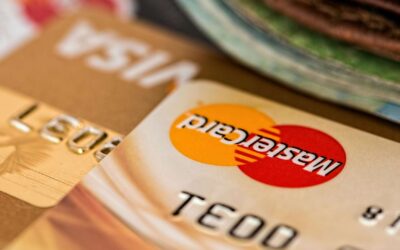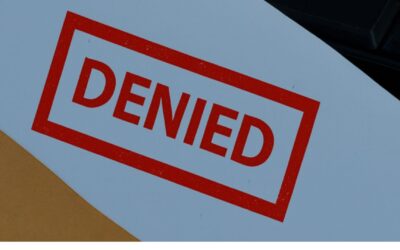Online banking has developed as a convenient and efficient way to manage personal finances but with increased fraud and scams, vigilance regarding the legitimacy of online banks is essential.
Potential users must carry out thorough due diligence before entrusting financial information to any online banking institution. This article outlines some methods to help make informed decisions and protect financial interests.
1. Regulatory Compliance: a Key Element of Legitimacy (Online Bank)
The regulatory environment is the foundation on which the legitimacy of the financial sector rests. Established and reputable online banks are registered with the relevant financial regulators in their jurisdiction. It is essential to check whether an online bank is regulated and authorised to provide banking services. The official websites of regulatory authorities often provide lists of approved banks, allowing potential customers to cross-check and confirm the legitimacy of a bank before proceeding further.
2. Secure Website Connection: a Sign of Commitment to Security
The security of a bank’s website is an indicator of its commitment to protecting its customers’ data. A legitimate online bank prioritises data security through the use of encryption technology. Users can identify a secure connection by looking for “https://” in the website URL, accompanied by a padlock icon in the browser address bar. This indicates the use of SSL encryption, which encrypts data transmitted between the user’s device and the bank’s server, reducing the risk of unauthorised access and data violation.
3. Comprehensive Contact Information and Customer Support
Open and transparent communication is a distinctive feature of legitimate online banks. A legitimate institution provides accurate and accessible contact information, including telephone numbers, e-mail addresses, and physical addresses. To assess the legitimacy of an online bank, it is advisable to test the responsiveness of its customer service. Asking questions allows potential customers to assess the bank’s level of professionalism, responsiveness, and commitment to assisting them. A lack of accessible customer service or delays in response should raise concerns about the bank’s legitimacy.
4. Transparency Through Documentation
Legitimate online banks value transparency and provide clear and comprehensive documentation. This includes terms and conditions, privacy policies, and fee schedules. It is essential that consumers examine these documents carefully to ensure that they are clear, accurate, and free of ambiguous terms. Transparent documentation demonstrates an institution’s commitment to building trust with customers and indicates that it is unlikely to engage in misleading practices.
5. The Power of Online Presence and Reviews
A legitimate online bank maintains a consistent and professional online presence. This includes a well-designed website, active social media profiles, and credible reviews on trusted platforms such as Google,Trustpilot, and the Better Business Bureau. When considering reviews, it is essential to look for trends in comments. A mix of positive and constructive reviews, as well as appropriate responses to negative reviews, highlight the bank’s dedication to customer satisfaction. However, it is essential to be discerning, as manipulated reviews and ratings can mislead consumers.

6. Licensing and Permissions: Foundations of Trust
A legitimate online bank has the licences and authorisations required to operate as a financial institution. Consumers should check the bank’s credentials through official channels, such as financial regulatory agencies. Having verified licences and authorisations reinforces the bank’s adherence to legal and operational standards, and inspires confidence in its legitimacy.
7. Verification of Ownership and Affiliation
Checking the ownership and affiliation of an online bank is a wise step before entering into a financial relationship. Scammers often try to reproduce the brand image of well-established banks. Consumers can cross-check the bank’s claims with information available on the official websites of the parent company and regulatory authorities to validate affiliations.
8. Identifying Red Flags and Warning Signs
When it comes to assessing the legitimacy of an online bank, there are a number of redflags to be alert to. These include aggressive sales tactics, unwanted offers, requests for sensitive information via unsolicited emails and promises of unreasonably high returns. It is vital to be aware of these warning signs. Consumers should carry out thorough research and due diligence before committing themselves further to the institution. If you do not have enough time and patience to study the viability of a financial institution, we urge you to seek professional advice.
Bottom line
Today’s online banking offers greater convenience, but it also requires extra caution. Ensuring the legitimacy of an online bank is a fundamental responsibility for consumers looking for a safe and trusted financial partner.
By following the guidelines outlined – from verifying regulatory compliance and examining website security to evaluating customer support and conducting membership checks – consumers can navigate the digital financial landscape with confidence and make informed choices.
Read our article: “Why a Will Alone is Not Enough?” for more useful insights.
If you wish to discover more about the credibility of online banks to which you can entrust your financial resources, do not hesitate to book a free consultation with our team now.
Disclaimer
Widelia and its affiliates do not provide tax, investment, legal or accounting advice. Material on this page has been prepared for informational purposes only, and is not intended to provide, and should not be relied on for, tax, investment, legal or accounting advice. You should consult your own tax, legal, and accounting advisors before engaging in any transaction. Please consult https://widelia.com/disclaimer/ for more information.









